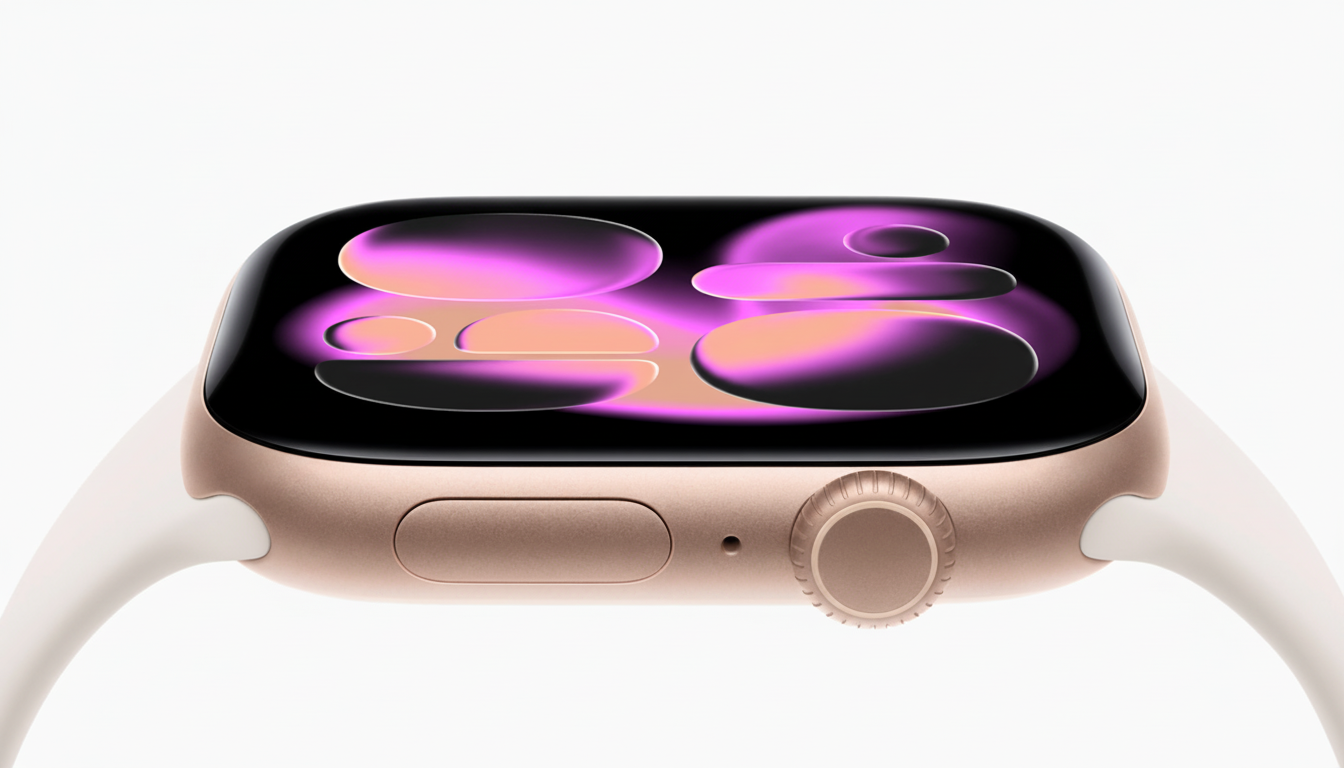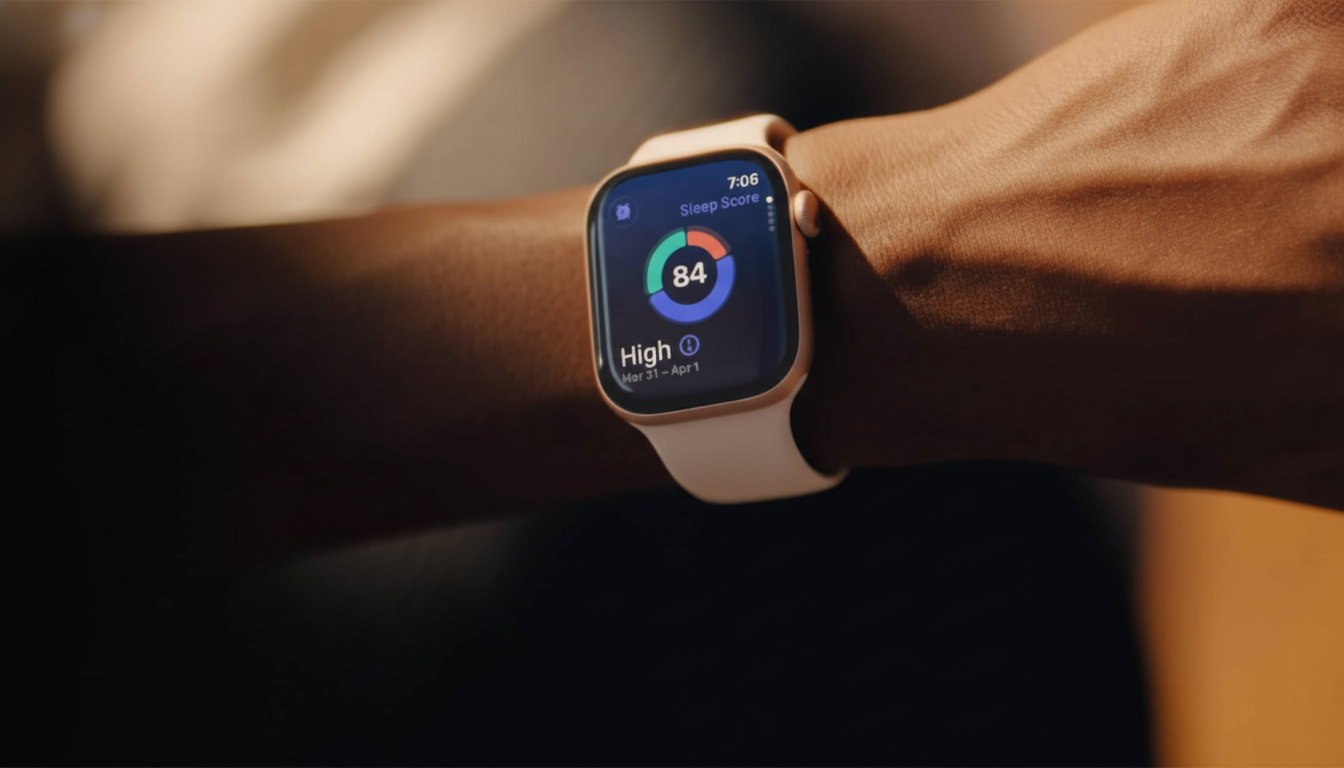For several weeks I wore the Apple Watch Series 11 and Samsung Galaxy Watch 8 back to back during runs, workouts, commutes, flights and while tracking my sleep. AdvertisementI considered accuracy, battery life, AI-assisted features and how each watch truly fits in with a daily routine. Both are wonderful, but one is consistently great. Here’s the winner and why.
Design, comfort, and displays
Apple opts to keep its squared look, and a clear always-on display that’s easy to read at a glance. Quick interactions feel natural with the haptic crown and premium strap ecosystem. Samsung throws down with a round face and a tactile rotating bezel that’s brilliant for scrolling in the rain or while wearing gloves. Both panels are bright enough to stretch pixels under midday sun; neither had issues with glare in my testing.

Fit is going to be more important than design when you’re wearing a device 18 hours a day.
The Series 11 lies flatter, an advantage during sleep, and the Galaxy Watch 8 feels a touch lighter on the wrist during lengthy runs. Durability is a wash: Apple is WR50 water resistance and dust protected; Samsung adds 5ATM, IP68 and MIL-STD-level toughness travelers will love.
Performance and battery life
Both of the watches feel fast, though Apple’s animations, haptics and handoffs to and from apps are notably uniform. Third-party watch apps open faster on the Series 11, and they keep background tasks (music, maps, workouts) going smoothly and without hiccup. Samsung’s Wear OS build is also smooth and apps now boot up quickly—leaps and bounds better than what you’d find on older generations.
The first big separator is battery life. With its always-on display turned on, receiving notifications, and tracking one workout each day, the Galaxy Watch 8 consistently gave me just shy of two full days (44 to 50 hours) before I needed to reach for the charger. The Apple Watch Series 11 lasted well more than nine teen on its 30-36 hours days of past, and well more on the road once I turned off always-on. Apple has some speedy charging love; a quick top-up before a night out was genuinely useful.
Health tracking and safety
Apple’s health stack remains the one to beat for polish and reliability. Workout sensing, heart-rate smoothing and GPS traces were uniformly clean. The latest Sleep Scores combine sleep stages and consistency, and provide clearer coaching cues in the morning. It’s worth noting that Apple’s FDA-cleared ECG and irregular rhythm notifications are joined here by AFib History trends; if your 30‑day ECG recordings hit a certain threshold, the watch gives you a gentle nudge to seek out a clinician. That proactive framing fits guidance from cardiology groups that has emphasized trend-based assessment, rather than one-off readings.
Samsung strikes back with breadth: ECG and blood pressure (where cleared), body composition through BIA, skin temperature, and a comprehensive Running Coach. The running test evaluated my baseline fitness and created a progressive plan that was tailored to my actual fitness level — more prescriptive than Apple’s coaching today. For athletes who appreciate small nudges toward pace, cadence and recovery windows, Samsung’s approach feels focused and practical. To be sure, BIA and wrist BP aren’t medical diagnostics; they’re trend tools — a message that is consistent among sports medicine researchers and consumer health labs.

On safety, Apple’s fall detection and crash detection are still standouts. Emergency SOS is simple and quick to do. Samsung also offers fall detection and SOS, and it worked in my stairwell drop test, but Apple’s triggers fired more reliably in my simulated accidents. Sleep apnea symptoms and cycle tracking are present on both platforms; Apple’s cycle predictions and retrospective trends are still a favorite among patients, according to OBs and sleep clinicians I’ve talked with.
Smart features and AI
Apple’s AI is intentionally low-key. You’ll feel it when Smart Stack presents the right tile for you a moment before you know you need it — like Pilates when you enter your studio — or when notification volume tries to match your current acoustical environment. On-device Smart Replies now sound even more like you — and made rapid messaging surprisingly effective. (Workout Buddy (earbuds in my ear) was good about giving me updated stats without over yapping).
Samsung swings for the louder AI punch. Coaching from the Galaxy Watch 8 tilts more towards practical advice and multiple step requests via the assistant, which can handle task such as messages, timers and quick searches without punting you to the phone. And if you live in Google’s services, it mostly feels seamless: Calendar, Maps and voice interactions feel deeply woven, and Samsung Health’s wellness recommendations start to creep in more throughout the day.
Apps, services, and lock‑in
Here is the practical rule of omn though: iPhone equals Apple Watch; Android equals Galaxy Watch. Normal Apple Watch does not work with Android, and Samsung’s latest watches do not work with iPhone. Inside those walls, however, Apple’s watchOS app library is wider, particularly when it comes to pricier fitness, productivity, and accessibility apps. Market researchers regularly put Apple in a share class of its own when it comes to smartwatch revenue, and that maturity is apparent in the day-to-day reliability of the hardware and support from developers. Samsung’s Wear OS world has expanded rapidly, is bolstered by better big-name app support than a couple of years ago.
The winner and who should buy what
For iPhone users, it’s a no-brainer to pick the Apple Watch Series 11. Its health features seem clinically grounded, safety tools are best in class and the app ecosystem is richer. The Galaxy Watch 8 is simply the better Android pick, offering longer battery life and crisper coaching for runners and gym-goers.
If I had to name one big winner overall, it’s the Apple Watch Series 11. It’s the smartwatch I trust the most to reliably do the right thing — surface the right information quietly, log the most accurate data, give me a gentle nudge if it senses something bigger going on that I should address with a doctor. The Galaxy Watch 8 is Samsung’s great second act that outdoes it in battery life, feature sheer number, and ambition for AI coaching features and it is my pick if you have an Android phone. But on polish, safety, and health credibility, Apple has its edge.
Methodology note: I tested each watch nonstop over the course of a complete cycle of work, training and travel; cross-referenced metrics with a chest strap monitor and a handheld pulse oximeter; and compared trends against recommendations from the F.D.A., the American College of Cardiology, and sleep studies from outfits like the National Sleep Foundation.

